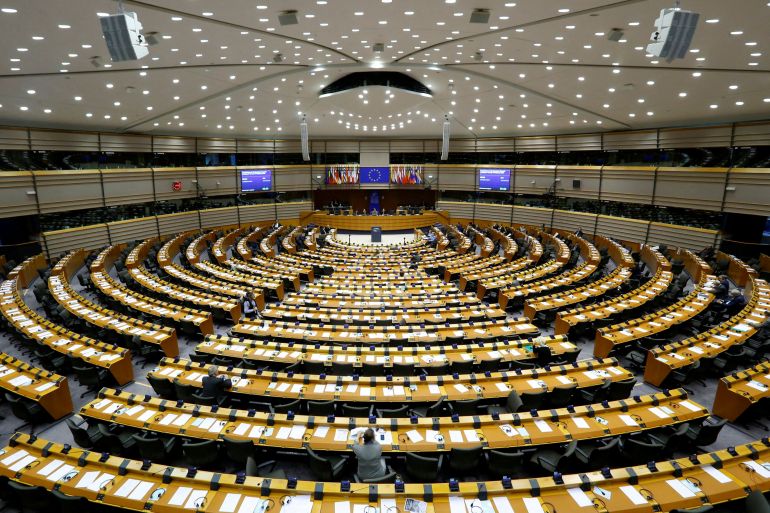European Parliament adopts landmark laws for internet platforms
The new rules will improve internet consumer protection and supervision of online platforms.

The European Parliament has adopted landmark laws that will improve internet consumer protection and supervision of online platforms.
The Digital Services Act (DSA) passed with 539 votes in favour, 54 votes against and 30 abstentions on Tuesday. The Digital Markets Act (DMA) was adopted with 588 in favour, 11 votes against and 31 abstentions.
Keep reading
list of 2 itemsEU negotiators agree landmark law to curb US big tech giants
European Union internal market commissioner Thierry Breton, a champion of the regulations, praised the EU legislature on Twitter, hailing the vote as “historic”.
European Commission President Ursula von der Leyen said the commission “will be the digital regulator for the biggest platforms”.
The DSA represents the biggest shake-up in EU law in this area in about 20 years and spells out the responsibilities of technology and internet companies.
It means companies must moderate their platforms for harmful content like COVID-19 disinformation and introduce protocols to block the spread of dangerous material during crises like the pandemic.
Companies must also increase transparency regarding interactions with users and simplify user agreements.
Targeted ads
Furthermore, the DSA bans targeted advertising using sensitive personal data like sexual orientation or political and religious beliefs. Targeted advertising for minors is also banned.
The DMA focuses on market distortion risks and targets the biggest digital players – those platforms that act as so-called “gatekeepers” – to prevent them from abusing their dominant market position.
Once EU member states have adopted the legislation, which is regarded as a formality, a 15-month transitional period starts, after which it enters into force.